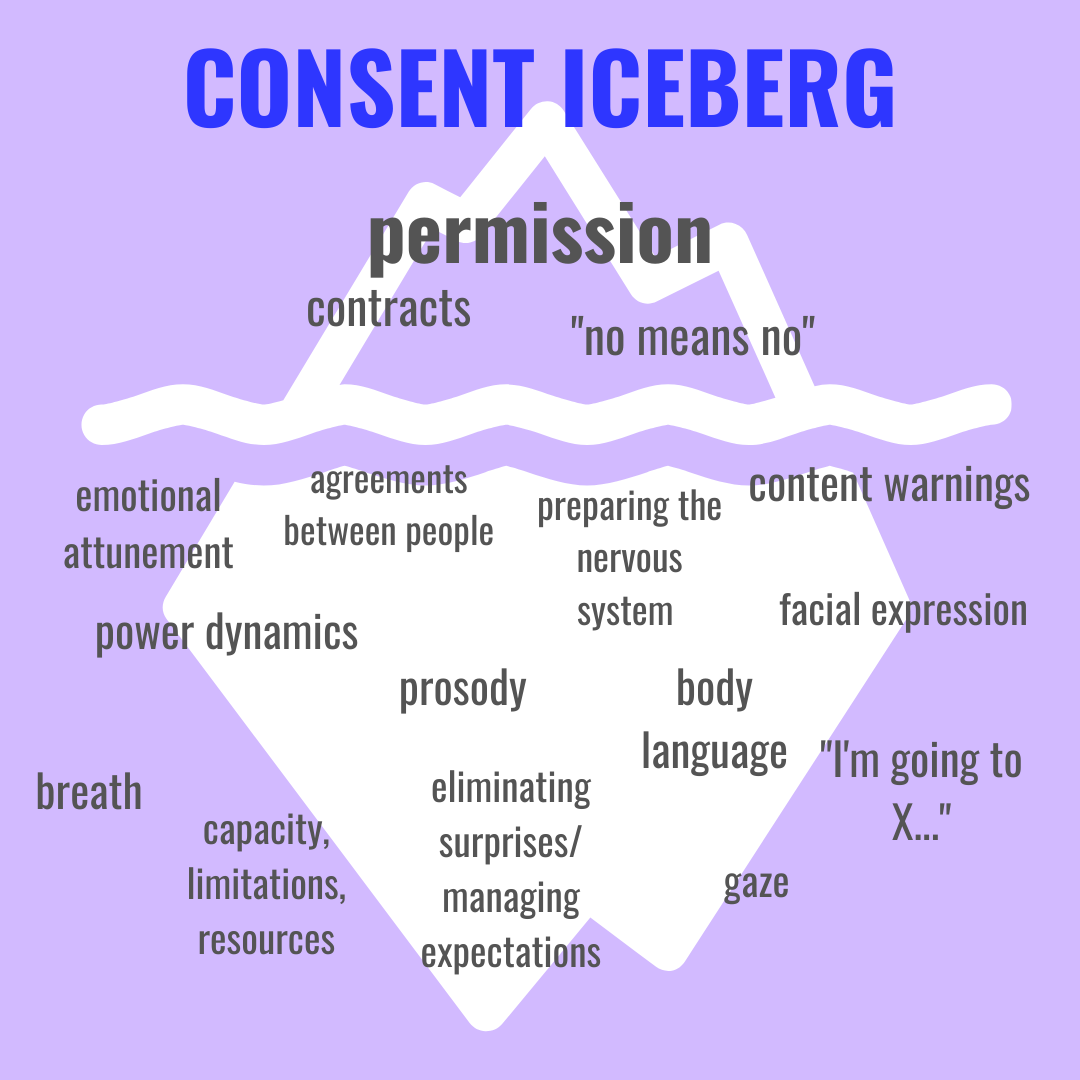You were born without your permission, after all.
Introduction: What is consent, and what is it not?
From my book Unsolicited Advice: The Canceled Memoir of a Consent Educator
Introduction
I define consent as an ongoing, practical approach to communication; a mode of checking in with yourself and others about our limitations, capacity, and resources. Consent is a kind of deep listening which I call full-body listening: not just for words, but also for gaze, body language, facial expression, prosody (how you say what you say with your tone, volume, pitch, pace, etc. Everything about speech other than the words), and other forms of often unconscious information. It is a path towards knowing yourself—what do I want, what do I not want? Consent is a language and can be embodied. Embodiment = fluency.
Consent is not a checklist, rules, or a set of questions, nor is it something you can ever do perfectly. Consent is also not only permission. Consent and permission often get conflated. But, whereas permission is a question (“May I…?”) with an answer (yes, no, maybe), consent is ongoing. The danger of conflating the two is the resultant belief that we can check the permission box and be done with consent. “But I got consent,” you’ll often hear.
Consent is much more than permission. Permission is just the tip of the iceberg.
There is also a common misconception that some actions—such as acts of service—don’t require consent at all. Nonconsensual service comes in the form of helping without permission, helping the way you want help but not the way the recipient wants help, and, so commonly, unsolicited advice. In practice, nonconsensual service can look like an episode of The O.C. where Marissa Cooper’s mom Julie suggests she “wear the Chanel” because it’s “more flattering;” or it can be my own mother hinting that I do something about the hair on my upper lip or saying, “Don’t you want to put on some lipstick?” It can also look like someone, upon hearing that you couldn’t sleep last night, suggesting you try melatonin, switch to green tea, or meditate.
And yet, as we challenge all binaries—determinism and free will, yes and no, consenting and not consenting, wanting and not wanting—unsolicited and solicited can also coexist. Let’s be careful not to flatten all nonconsensual aspects of life into violations; it’s possible for consent not to take place without a violation also occurring. You were born without your permission, after all.
Photo by Summer Wagner
Being a paid subscriber supports getting anti-carceral consent education as far and wide as possible. The full subscription is $9/month. If you’d like to follow along but need a lower price, use these: 25% off, 50% off
Recommending this newsletter in your recommendations list is the best way to help spread the word! xx
Live Classes • Recorded Classes • Workbooks • Consulting • Merch! • Share the Load Podcast • You’re Doing It Wrong Podcast
There’s a 10% off discount code to classes below the paywall…
Keep reading with a 7-day free trial
Subscribe to Unsolicited Advice from Mia Schachter to keep reading this post and get 7 days of free access to the full post archives.





